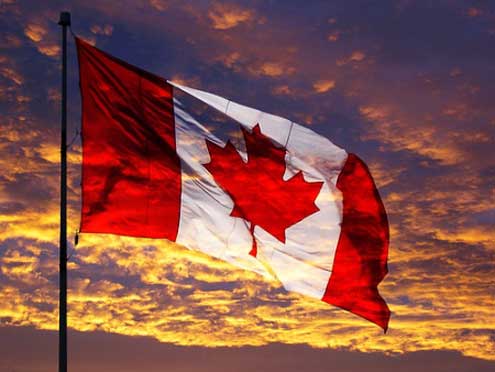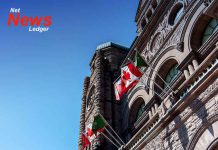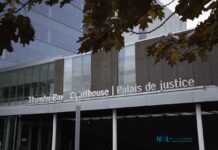 THUNDER BAY – Opinion – There is considerable evidence to indicate that the reckless and hell-bent-for-leather policy of developing the Alberta Tar Sands at all costs has been, in fact, quite costly! Not only to First Nations communities in northern Alberta who live “downstream” from the goo and the guck and the ravaged natural environment, but to the economy of the country – particularly to the economy of Ontario.
THUNDER BAY – Opinion – There is considerable evidence to indicate that the reckless and hell-bent-for-leather policy of developing the Alberta Tar Sands at all costs has been, in fact, quite costly! Not only to First Nations communities in northern Alberta who live “downstream” from the goo and the guck and the ravaged natural environment, but to the economy of the country – particularly to the economy of Ontario.
The rise in the value of the Canadian petro-dollar, fuelled by escalating oil prices have made Canadian exports much more expensive for foreign buyers to purchase. The result: A too-rapid decline in Ontario’s manufacturing sector and an attendant decrease in commercial and industrial taxes have helped reduce Ontario to a “have not” province.
It is now a recipient of transfer payments from the federal government when once it was a contributor of those payments to other provinces. At one time not so long ago, Ontario had a well-earned reputation for playing a leadership role in the Canadian federation – being the mediator between the federal government and the other provinces who always seemed to have squabbling with each other and the feds as a favoured pastime. However, no longer can it claim that high ground.
What is even more disturbing, however, is how far Ontario has fallen behind other, more progressive Canadian jurisdictions in recognizing the need for and actively promoting a constructive dialogue around resource development and revenue sharing with First Nation communities. In that way as well, Ontario has become a “have not” province.
Successive governments in Ontario simply “have not” got it! They have not been able to connect the dots to realize that the future of resource development in this province must be based not only on sound and constructive consultation policies and practises, but also on a commitment to share in the revenues that those developments will create.
We strive to teach our children that our actions have consequences; that we can always learn from our mistakes. Ontario has done neither when it comes to recognizing constitutionally protected Aboriginal rights and title and sharing in resource development and revenues. At best, Ontario seems to but muddle through these challenges lurching blindly from chaos to crisis, from boil to boil on the body politic and lancing them afterwards with very messy results. Starting decades ago when it sat idly by and watched Dryden Pulp and Paper despoil the English and Wabigoon River systems and destroy the sustenance and livelihood sources of many in White Dog and Grassy Narrows First Nations to the latest start again/stop again efforts around the Ring of Fire, the list of failed opportunities is both lengthy and distressing. What has Ontario learned from the death of Dudley George and the damning conclusions of the Ipperwash inquiry; the diddling over the Haldimand Tract, the bungling in the Caledonia stand-off around the Douglas Creek Estates development, the terribly ill-advised judicial decision to jail outright the leadership of Kitchenuhmaykoosib Inninuwug, the Grassy Narrows blockade, the heavy-handed approach to the development and promulgation of the Far North Act? The litany of failure and ineptitude is a long and sorrowful one. Bill Gallagher, a lawyer with expertise in treaty negotiations and dispute resolution and an authority on the growing and hard-won legal clout of First Nations in the resource sector perhaps said it best in his 2011 book Resource Rulers: Fortune and Folly on Canada’s Road to Resources, “It is abundantly clear that Ontario has paid a very high price for its mishandling of its most important relationship. . . . Native anger. . . is regularly stoked by the systematic political and bureaucratic incompetence that pervades Queen’s Park. Native anger continues to be the defining feature of the crown / native relationship. Until. . . this is rectified, Ontario will remain in the grip of its self-made and self-sustained time warp”. The coming and going of a half dozen plus Ministers of Aboriginal Affairs in the Ontario government speaks volumes! Before that volume gets any louder, Ontario would be well advised to focus far greater attention and resources on righting this relationship. Can it afford not to?
Next time around; Ontario, Impact Benefit Agreements and the approaches of other provinces.
Peter Globensky is a former senior policy advisor on Aboriginal Affairs in the Office of the Prime Minister and recently retired as CEO of the Canadian Council of Ministers of the Environment.














